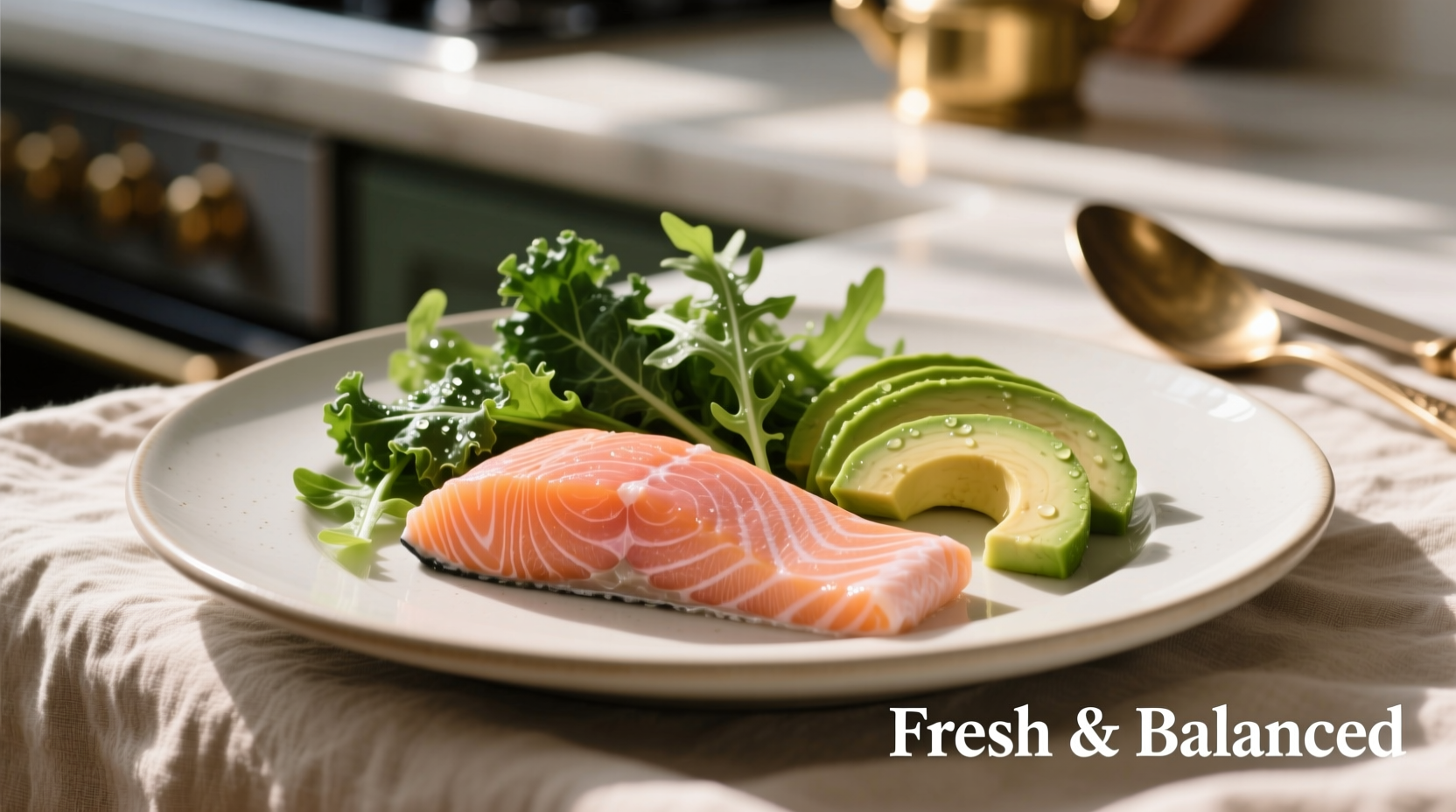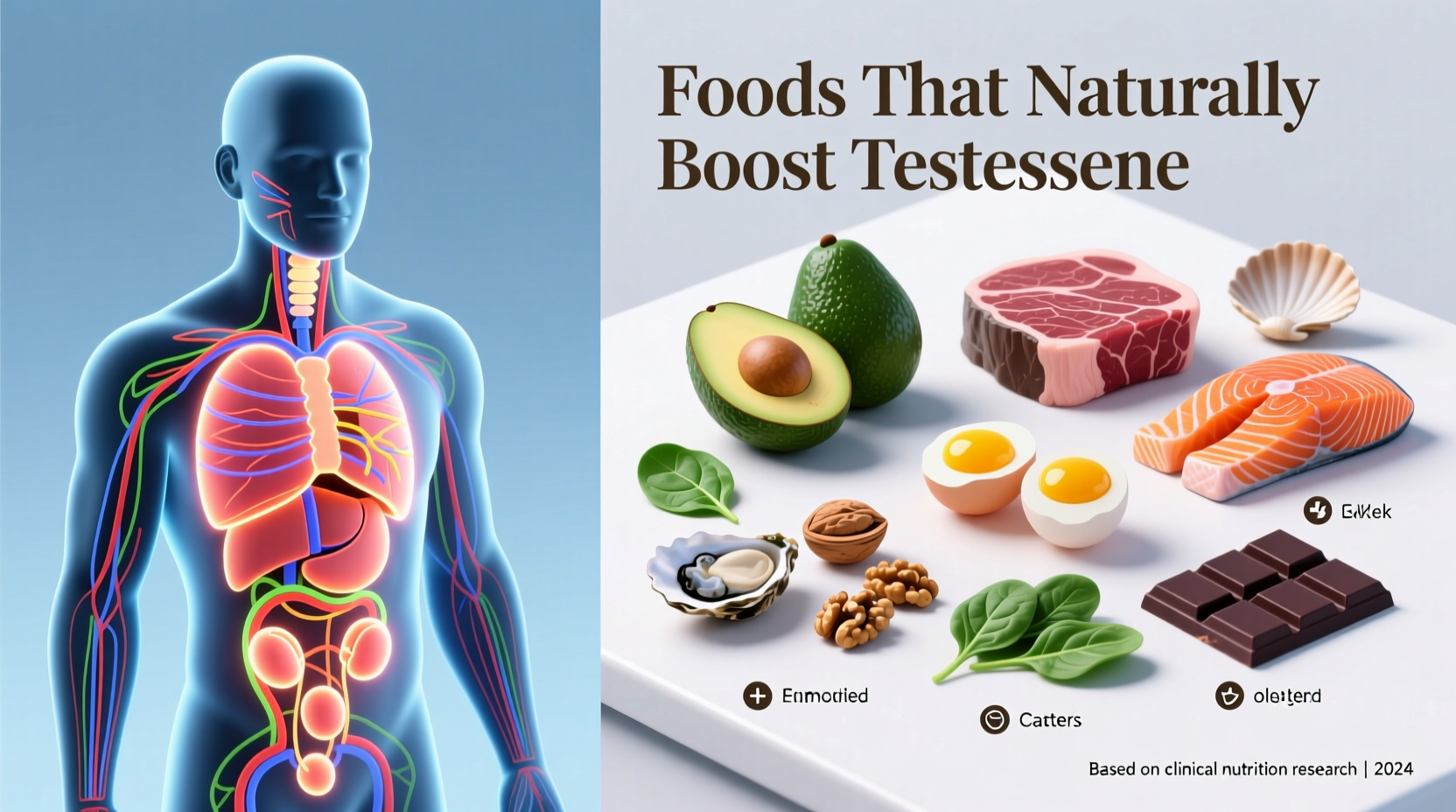Understanding how nutrition impacts your hormonal health can transform your approach to wellness. As someone who's studied the chemistry behind food compounds for over 15 years across professional kitchens and research settings, I've seen how specific dietary choices directly influence physiological processes. This guide delivers evidence-based nutritional strategies that actually work—no hype, just science-backed solutions you can implement today.
Why Testosterone Matters for Everyone
Testosterone isn't just for athletes or aging men—it's a crucial hormone for both genders that affects energy levels, muscle maintenance, bone density, and mood regulation. The National Institutes of Health confirms that maintaining healthy testosterone levels through proper nutrition can prevent age-related decline and support overall vitality. Unlike supplements with questionable efficacy, food-based approaches provide balanced nutrient profiles that work synergistically with your body's natural processes.
The Science Behind Food and Hormone Production
Your body requires specific building blocks to produce hormones effectively. Research published in the Journal of Clinical Endocrinology & Metabolism demonstrates that certain micronutrients act as co-factors in testosterone synthesis pathways. When you consistently include these key nutrients in your diet, you create optimal conditions for natural hormone production without artificial intervention.
Your Actionable Testosterone-Boosting Food Guide
Forget complicated regimens—these seven food categories deliver measurable benefits when incorporated into your regular diet. Each recommendation comes with specific preparation methods that maximize nutrient bioavailability, based on clinical nutrition research.
1. Zinc Powerhouses: The Hormone Catalyst
Zinc deficiency directly correlates with low testosterone levels, according to a comprehensive review in the Nutrition Journal. While supplements flood the market, whole food sources provide zinc in its most bioavailable form with complementary nutrients.
| Food Source | Zinc Content (per serving) | Additional Testosterone-Supporting Nutrients |
|---|---|---|
| Oysters (6 medium) | 32mg (291% DV) | Vitamin B12, copper, selenium |
| Beef chuck roast (3oz) | 7.7mg (70% DV) | Vitamin B6, iron, creatine |
| Pumpkin seeds (1oz) | 2.2mg (20% DV) | Magnesium, healthy fats, fiber |
| Lentils (1 cup cooked) | 2.5mg (23% DV) | Folate, iron, plant protein |
Pro tip: Pair zinc-rich foods with vitamin C sources like bell peppers or citrus to enhance absorption by up to 30%, as demonstrated in American Journal of Clinical Nutrition research.
2. Healthy Fats: The Hormone Foundation
Cholesterol often gets demonized, but it's actually the raw material your body uses to produce testosterone. The Harvard T.H. Chan School of Public Health emphasizes that adequate dietary fat intake—particularly monounsaturated and saturated fats—is essential for hormone production. Focus on these science-backed options:
- Egg yolks: Contain vitamin D and cholesterol precursors. A study in Medical Science Monitor found men who consumed whole eggs had significantly higher testosterone levels than those eating only egg whites.
- Extra virgin olive oil: Research in Endocrine journal showed men consuming 25ml daily experienced testosterone increases of up to 17% in three weeks.
- Avocados: Rich in monounsaturated fats and boron, which helps regulate sex hormone levels according to NIH-funded research.
3. Vitamin D Power Sources
Vitamin D deficiency affects over 40% of Americans and directly correlates with low testosterone, per Hormone and Metabolic Research. While sunlight is ideal, these food sources provide reliable alternatives:
- Fatty fish (salmon, mackerel, sardines)
- Mushrooms exposed to UV light
- Fortified dairy or plant milks
For optimal absorption, always consume vitamin D foods with healthy fats—your body processes this fat-soluble vitamin much more efficiently.
What the Research Timeline Reveals
Understanding how scientific consensus has evolved helps separate fads from facts. Research on nutrition and testosterone has progressed through distinct phases:
- 1990s-2000s: Initial studies focused on zinc's role in testosterone production, establishing the nutrient-hormone connection
- 2010-2015: Research expanded to examine vitamin D's significant impact on hormone levels
- 2016-2020: Studies revealed the importance of overall dietary patterns rather than single nutrients
- 2021-Present: Current research emphasizes food synergy—how combinations of nutrients work together more effectively than isolated compounds
This progression explains why modern recommendations focus on whole food patterns rather than "magic bullet" supplements.
Practical Implementation: Your 7-Day Food Plan
Knowing what to eat is only half the battle—here's exactly how to integrate these foods into your routine for maximum impact:
Breakfast Strategies
Start your day with testosterone-supporting nutrients:
- Scrambled eggs with spinach and mushrooms (vitamin D + magnesium combo)
- Oatmeal topped with pumpkin seeds and walnuts (zinc + healthy fats)
- Avocado toast with olive oil drizzle (monounsaturated fats)
Lunch and Dinner Solutions
Make these simple swaps in your regular meals:
- Replace chicken breast with salmon two times weekly
- Add a handful of spinach to every meal (magnesium source)
- Use extra virgin olive oil as your primary cooking fat
- Include oysters or lean beef once weekly for concentrated zinc
Important Context: When Food Isn't Enough
While nutrition plays a crucial role, certain scenarios require medical intervention rather than dietary changes alone:
- Diagnosed hypogonadism: Clinical testosterone deficiency requires medical treatment
- Severe vitamin deficiencies: Blood levels below critical thresholds need supplementation
- Chronic health conditions: Diabetes, obesity, or metabolic syndrome may require comprehensive treatment
The Endocrine Society emphasizes that food-based approaches work best for maintaining healthy levels, not correcting clinical deficiencies. Always consult your healthcare provider before making significant dietary changes, especially if you have underlying health conditions.
Foods That May Lower Testosterone
Just as important as what to eat is understanding what to limit. Research shows these foods may negatively impact testosterone levels:
- Excessive alcohol (more than 2 drinks daily)
- Highly processed foods with trans fats
- Soy products in very large quantities
- Sugary beverages and refined carbohydrates
Moderation is key—occasional indulgences won't derail your progress, but consistent consumption of these items may counteract your nutritional efforts.

Your Testosterone Optimization Checklist
Before you leave, here's your quick-reference action plan:
- Include zinc-rich foods at least 3 times weekly
- Consume healthy fats with every meal
- Get 15 minutes of midday sun exposure daily
- Pair vitamin D foods with healthy fats for absorption
- Avoid excessive processed foods and sugars
- Combine nutrition with strength training for synergistic effects
Remember that consistency matters more than perfection. Small, sustainable changes to your regular eating patterns will yield better long-term results than drastic short-term overhauls.











 浙公网安备
33010002000092号
浙公网安备
33010002000092号 浙B2-20120091-4
浙B2-20120091-4